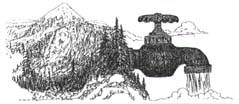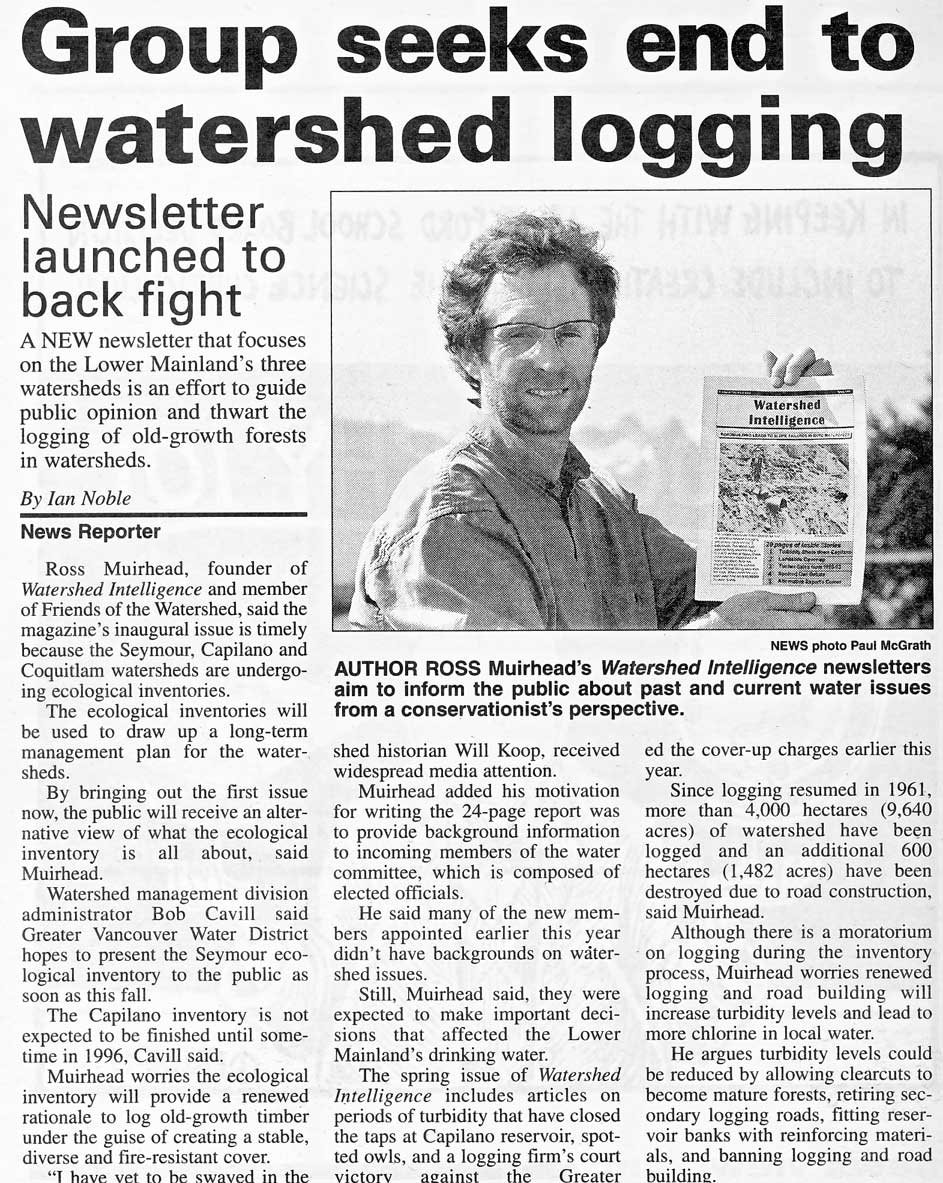

SPRING 2008
The "Community Forest" Trojan Horse - The Sunshine Coast Community Forest Proposal and Probationary License in Two Watershed Reserves - A Case History (2003 - 2008) By Will Koop, May 20, 2008. There are two available versions of this report in a pdf format. One is a large file of almost 20 megabytes. The 106-page report includes numerous images and maps. A smaller size text-only format, reduced to about 75 pages in length (it only has one image and one map), is also available as a consideration for those who may still be on the slower computer internet dial-up, at a file size of about one megabyte. For readers wishing to make a quick summary read of this report, a copy of the title page, table of contents, two page introduction and the two page conclusion are available. Excerpt
from the Conclusion: Given
the
background information about the facts presented
in this case history study, and the long-held public opposition to
logging in
the two community watersheds, there are important questions that need
to be
raised about the With
the
two Watershed Reserves now held in abeyance, or
off-limits, as a result of the Sechelt Indian Band’s Interim Measures,
whither
does the |
  This copy of an article which appeared in the North Shore News on July 12, 1995 helped launch the first publication (only in a series of 2) of Watershed Intelligence. As a self-funded journal, co-authors and co-editors Ross Muirhead and Will Koop with Friends of the Watersheds helped bring about a much needed forum to educate the Metro-Vancouver public and its elected representatives on the state of the Greater Vancouver watersheds and their administrative management controversies. In the spirit of this former enterprise, this journal has been resurrected by B.C. Tap Water Alliance Coordinator Will Koop to help fill an important niche, now aimed at a provincial level and audience. |